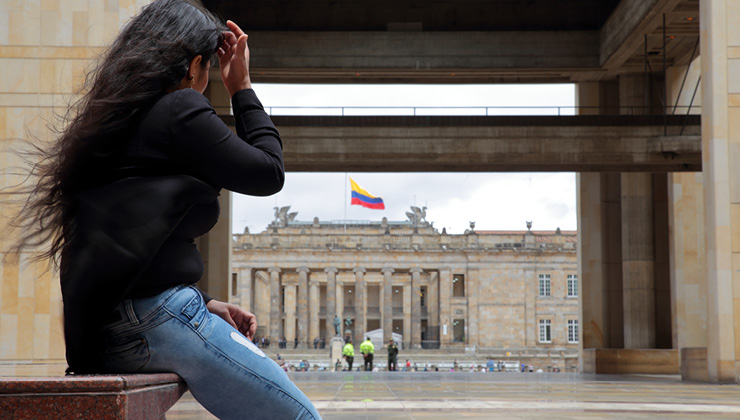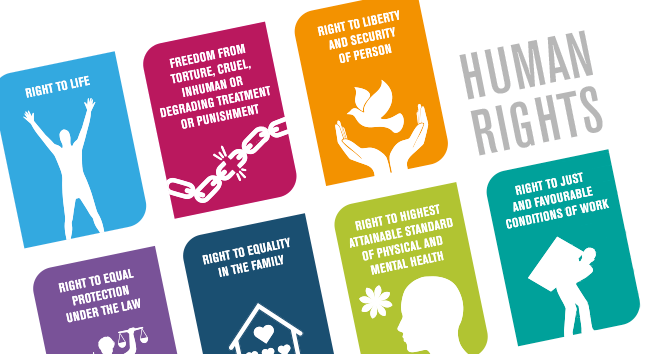Christine Chinkin and Madeleine Rees consider the scope and content of International Law at the intersection of new technologies, violence against women and war.

Saudi Arabia’s denial of women’s rights is blatant, despite its hypocritical accession to the Convention on the Elimination of All Forms of Discrimination against Women (CEDAW) in 2000. Its apparent impunity from widespread condemnation for its apartheid-like policies and practices with respect to women by states such as the US and UK rests on its geo-strategic importance in the global neo-liberal economic system, most particularly its status as an oil producing and weapons importing state. These countries continue to license export of billions of pounds of arms to Saudi Arabia despite the latter’s leading role in the coalition against anti-government forces in the war in Yemen (see House of Commons Library, Briefing Paper). The UN Human Rights Council Commission of Inquiry into the situation in Yemen has reported that coalition air strikes have hit ‘residential areas, markets, funerals, weddings, detention facilities, civilian boats and medical facilities’ causing ‘serious concerns about the targeting process applied by the coalition’. In face of the growing and related humanitarian disaster in Yemen, UK ministers have seen ‘no political justification’ for suspending or withdrawing arms sales, although the House of Lords Select Committee on International Relations has called the UK arms sales unlawful and that ministers are not checking their use. The similar situation in the US would, in the words of Donald Trump, hurt the US more than Saudi Arabia. The murder of a single journalist, Jamal Khashoggi, apparently merited more concern about arms sales– although now muted – than the deaths of thousands of Yemeni civilians, or the rights of women in Saudi Arabia.
Saudi women have now become the target of a new form of weapon – the google app, Absher, which is owned and operated by the interior ministry of Saudi Arabia and allows men to track women’s movements including across borders. It has unsurprisingly been greeted with widespread outrage by feminists, human rights bodies and some politicians because of its evident violation of women’s rights to freedom of movement and association, and also, we argue, the right to be free from gender-based violence. In its concluding observations to Saudi Arabia the CEDAW Committee noted ‘with concern’ male relatives who bring legal claims against “disobedient” female dependents fleeing domestic violence and the frequent ‘forceful return by law enforcement officials of fleeing women to their abusers.’ This app would make fleeing abuse even harder. While not as evidently a weapon as typhoon combat aircraft and associated systems, or the conventional weapons used to subjugate women – knives and guns – the app means that women experience the psychological violence of unremitting exercise of control over their bodies without limitations of time or space.
The UN Security Council in its women peace and security agenda has recognised that sexual violence can constitute a tactic of war and a tactic of terror that constitutes a threat to international peace and security (see UN SC Resolutions 1820, 2008; 1888, 2009; 2106, 2013; 2242, 2015). This formulation was welcome acknowledgment that conflict-related sexual violence can be deliberate, systemic and structural but has also been criticised for being too narrow. It fails to take account of the multiple forms of sexual violence, its gendered nature, including its occurrence against those perceived to have deviant sexual or gender identity, or its incidence across the continuum from peace through to armed conflict. The conjunction of use in Saudi Arabia of both conventional weapons of war against Yemeni civilians and this app highlights the connections between foreign and domestic policy, war and peace, and the need for a broader understanding in international law of weapons and their regulation.
The CEDAW Committee has made some moves in this direction in its General Recommendation No. 35 Without foreseeing the precise contours of such an app the Committee has asserted that gender-based violence against women is affected and often exacerbated by technological factors (as well as cultural, economic, ideological, political, religious, social and environmental factors) as evidenced by ‘the increased globalization of economic activities, including global supply chains, the extractive and offshoring industry, militarization, foreign occupation, armed conflict’. It also notes that gender-based violence against women can result from ‘the acts or omissions of State or non-State actors, acting territorially or extraterritoriality, including extraterritorial military actions of States, …, or extraterritorial operations of private corporations.’ The applicability of both the listed exacerbating factors and extraterritorial activities to the Saudi Arabia situation is striking – the extra-territorial activities of Google and the extra-territorial application of the app where a Saudi woman goes abroad, as well as the omission by the UK to determine the use of the weapons supplied to Saudi Arabia, “there is no tracking of the use of arms supplied by the UK”.
The multiple issues of state responsibility are complex. The UK denies legal responsibility for violations of international humanitarian law that result from the use of UK supplied arms. Under the general law of state responsibility Saudi Arabia is responsible for its own international wrongs, war crimes and acts or omissions that constitute gender-based violence or result in gender-based violence or other violations of women’s human rights carried out by its own agents, whether at home or abroad. Thus the CEDAW Committee has expressed its concern that Saudi Arabia ‘is responsible for violations of the rights of Yemeni women and girls’ both through indiscriminate air strikes and the life-threatening levels of malnutrition and disease. It might also be argued that just as violations of human rights committed by a private security company engaged by a state to provide security or military support are attributable to the state, Saudi Arabia should be responsible for an international wrong through the use of this app to reinforce control over women in accordance with its state policy. Further, the state is also responsible for its failure to exercise due diligence to prevent and protect women against violations of their human rights by non-state actors – the men using the apps and again, potentially, Google. Google too may be complicit in the violation of women’s rights. In General Recommendation No. 35, the CEDAW Committee insists that “States parties are required to take the steps necessary to prevent human rights violations perpetrated abroad by corporations over which they may exercise influence, whether through regulatory means or the use of incentives, including economic incentives.”
Technological advances may also of course provide benefits to women; the app may, as Google claims, make it easier for Saudi women to travel, to escape from the immediate physical control of male relatives or law enforcement officials. But this is at the cost of never being free from that virtual control. The app must be seen in the broader context of the continuum of violence by the state and by non-state actors with the complicity of the state through weaponisation, commodification of women and the securitisation of movement – to track suspected terrorists, extremists and fleeing women. Saudi Arabia benefits both from the reluctance of western states to jeopardise their economically valuable relationship with that state and by the fragmentation that allows armed conflict, arms sales, access to oil, gender-based violence against women, freedom of movement and commercial development and use of technology to be regarded and regulated (if at all) in separate silos and not understood as a continuum of violence to uphold patriarchy and inequality.
This blog was written with the support of a European Research Council (ERC) grant under the European Union’s Horizon 2020 research and innovation programme (Grant agreement No. 786494).
The views, thoughts and opinions expressed in this blog post are those of the author(s) only, and do not reflect LSE’s or those of the LSE Centre for Women, Peace and Security.





